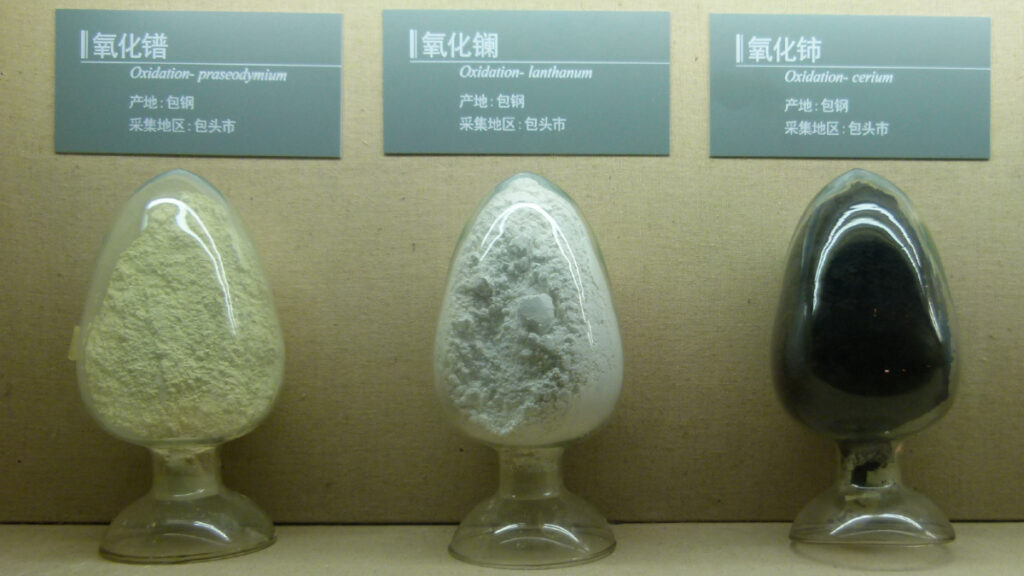
The Group of Seven nations (G7) and the European Union are reportedly collaborating to reduce their reliance on China for rare earth minerals. This move comes after China tightened its export controls on key minerals and related refinery technologies on October 9. Media reports indicate that the G7 countries and the EU are contemplating the introduction of price floors to ensure profitability for non-Chinese rare earth suppliers.
On October 17, Canada’s Finance Minister François-Philippe Champagne emphasized the potential for G7 nations to transition “from dependence to resilience” in the rare earth supply chain, citing the availability of tools and resources to establish an alternative pipeline. Meanwhile, EU Trade Commissioner Maros Sefcovic noted last week that the EU is coordinating with G7 members to respond to China’s export restrictions on rare earths.
The upcoming G7 Energy and Environment Ministers’ Meeting in Toronto, Canada, scheduled for October 30 and 31, is expected to further these discussions on rare earth security and the proposed price floor system for non-Chinese suppliers. The consensus from the G7 Summit in Kananaskis in June, which called for enhanced coordination on critical mineral supply chains, will serve as a foundation for the Toronto meeting. Officials suggest that this gathering could result in the first concrete framework for coordinated measures aimed at reducing dependency on Chinese exports.
Global Strategic Moves
In a related development, Australian Prime Minister Anthony Albanese met with US President Donald Trump in Washington on Monday. The two leaders signed a rare earths agreement positioning Australia as a key supplier to the US critical minerals chain. This agreement, signed at the White House, also reaffirmed the Aukus security pact and its shared objective of reducing dependence on China.
Costs and Criticisms of Price Floors
The concept of price floors is not without precedent. In the United States, MP Materials, a rare earth producer, benefits from a government-backed agreement that guarantees a minimum price of $110 per kilogram for neodymium-praseodymium (NdPr) oxide, compared to China’s price of $88 per kilogram. This premium helps offset higher production costs and underscores Washington’s commitment to building a self-sustaining rare earth supply chain.
“The G7’s price floor strategy is flawed and could backfire,” says a Hebei-based columnist writing under the pseudonym “Pianist under the Moonlight.” “If the price floor is set too low, no one will invest; if it’s set too high, downstream industries cannot afford it.”
Critics argue that artificial price hikes could increase the cost of electric vehicles, wind turbines, and consumer electronics, ultimately burdening consumers. German automakers are anticipated to resist aggressive price-floor policies, potentially lobbying for exemptions or subsidies that could fracture the G7’s rare earth alliance.
Historical Context and Market Dynamics
In 2010, China tightened rare earth exports to Japan, prompting the US, the EU, and Japan to file a complaint against Beijing at the World Trade Organization. Concurrently, US-based Molycorp restarted the long-closed Mountain Pass mine, while Australia’s Lynas secured Japanese investment to expand production. However, after China lost the WTO case in 2014 and subsequently flooded the market with rare earth supplies, global producers suffered heavy losses, leading to Molycorp’s bankruptcy in 2015.
A Shandong-based columnist notes that China “fortunately” lost the 2014 lawsuit, allowing it to gain market share, improve refining know-how, and secure the power to shape global industry standards.
Diplomatic Tensions and Future Outlook
China has attempted to de-escalate tensions since US President Donald Trump threatened additional tariffs on Chinese goods on October 10. On Monday, China removed veteran negotiator Li Chenggang, known as a “wolf warrior” in diplomacy, from his position as permanent representative to the World Trade Organization. This move followed remarks by US Commerce Secretary Scott Bessent, who criticized Li’s conduct during a visit to Washington.
“The US has seriously misinterpreted and exaggerated China’s measures, deliberately creating misunderstanding and panic,” He Yongqian, spokesperson for the Chinese Commerce Ministry, stated in a media briefing on October 16.
Looking ahead, Bessent announced that he expects a meeting between Trump and Chinese President Xi Jinping in South Korea later this month, potentially paving the way for further dialogue on trade and rare earths.






